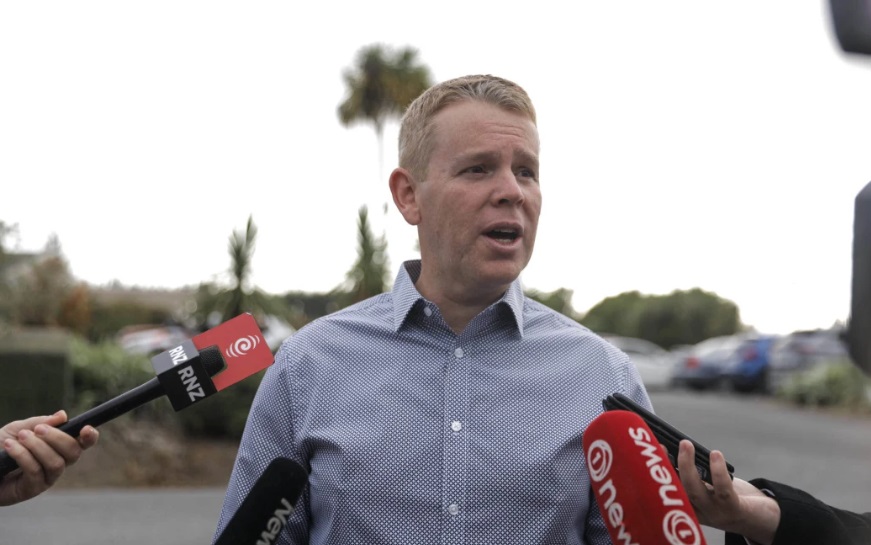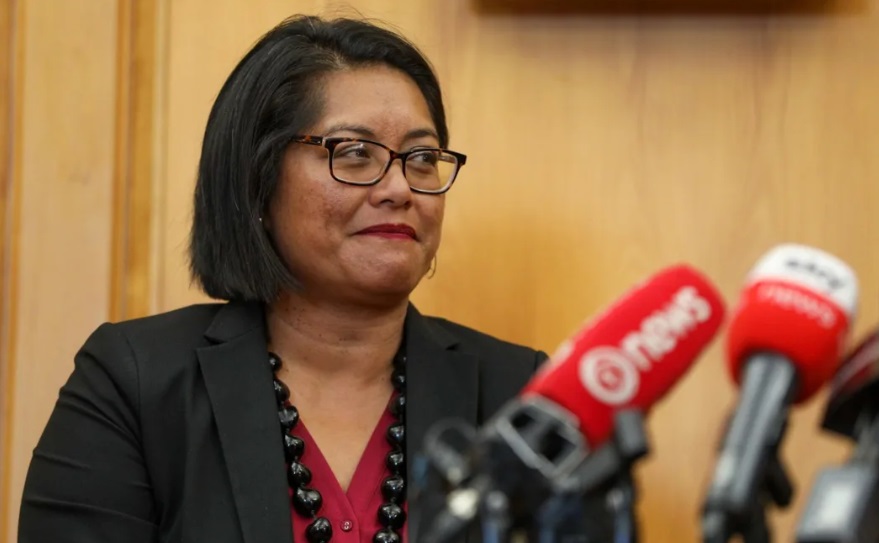
It is the first time Hipkins has attended the retreat as leader; the last one played host to his predecessor Jacinda Ardern's resignation announcement.
He focused first on the government, making clear his strategy not to "bark at every passing car", as some oppositions had tended to do in the past.
"I think this current government are already doing themselves enormous damage," he said.
"New Zealanders voted for change, there's no question about that. I don't think this is the change they had in mind. I don't think they had in mind more New Zealanders smoking, I don't think they had in mind more children living in poverty, I don't think they had in mind cancelling and dialling back action on climate change - but that's actually what this government are delivering.
"And it is a government with double standards - a standard for themselves and a standard for every other New Zealander - and I think we see that on a daily basis."
However, he spent most of his time on his own party. His opening remarks were delivered at the Brackenridge venue in Martinborough, a more intimate setting than the one attended in the past term where a larger space was needed for a larger number of MPs.
It poses a stark reminder to the party of just how much it lost in last year's election, and the work required to rebuild.
"Our challenge over the next 24 months or so ... is to ensure that we build Labour into a winning machine so that when the next election rolls around we can form government again," Hipkins said.
He explained Labour had three jobs ahead of them.
The first was to be a good opposition and offer positive alternatives that spoke to Labour's values.
The second was be ready for the next election as the "best prepared potential incoming government that New Zealand has ever seen".
This would mean showing New Zealand that "we don't just have good ideas but we've actually worked them through to the point that we know how they will be implemented, we know what they're going to cost, we know when they will be implemented".
Third, they needed to rebuild the Labour movement by recruiting, fundraising, building support networks and connecting with local communities.
One of the big questions for Labour will undoubtedly be on tax. Hipkins' decision last year not to campaign on any wealth or capital gains tax in favour of GST-free fruit and vegetables clearly rankled with some of his own MPs - many of them continuing to talk about the need for one as the campaign wore on.
Then-Revenue Minister David Parker resigned his role over the decision, saying it was untenable for him to remain given his views.
Hipkins had ruled out any wealth or capital gains tax under a government he led, but after the election left the gate open to changing the party's approach - saying in November everything was back on the table.
Parker told reporters today he still thought the tax system was "very very unfair".
"Working New Zealanders pay for everything, they pay for all of the transfer payments and the hospital systems and the schools, wealthier New Zealanders pay very little tax.
"I favour a wealth tax, but there's also arguments in favour of a capital gains tax and that's a debate that the country and the Labour Party needs to have."
He disagreed the problem showed a divide in Labour's caucus, however.
"There is a discussion within Labour about whether it should be a capital gains tax or a wealth tax - but that's a very proper debate to have, and that's not division, that's just a debate about what's best."
He said that debate would be had "well before the next election but I won't be more specific than that".

Labour MP Greg O'Connor argued the party was in it for the long haul, and it was good the retreat had been delayed from the usual January date.
"I'm not quite sure we would have really seen the colour of the eyes of the government and seen the net impact of what they were doing. This throwing out select committees, throwing out the democratic processes - there'll be a price to pay for that.
"This is the Melbourne Cup - it isn't a sprint race. And so we've got to go long and if you start thinking around this as 'it's about next week' or even next month, you're going to make a mistake."
As Hipkins acknowledged to reporters, however, Parliamentary terms can "actually move quite fast".
He highlighted the challenges of recent years - particularly the Covid-19 pandemic - as a "pretty bumpy couple of years for New Zealand".
"A lot of the decisions we took weren't necessarily ones that you'd expect of a Labour government. They were tough decisions and I think those were extraordinary times. We're not in those extraordinary times now."
He said the party always had to reflect on what could have been done better, but "we're looking forwards rather than backwards".
"We haven't set out any policies yet and that of course is one of the things that we have to do over the next few years ... the Labour Party's values have been consistent throughout our history and they don't change from election to election - what we have to do though is make sure that the policies we're putting forward in aid of those values are actually speaking to the times that we're in."
Senior Labour MP Jan Tinetti said she thought some people had got confused about exactly what Labour's values were at last year's campaign.
"We need to go back to those roots and we need to really stand strong," she said. "Now we need to really stand strong as a really strong opposition."
The earlier Labour can settle on a tax position, the more time they will have to sell their vision to the public - but it will also mean leaving their proposal exposed to the attacks of their opponents.
Either way, the time to the next election is already ticking down.












